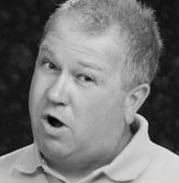Post by account_disabled on Feb 20, 2024 0:05:38 GMT -5
In line with its supply chain decarbonization roadmap , the water division of the Swiss Nestlé Group, Nestlé Waters France, has announced that it will use the first hydrogen-powered train to transport goods.
Developed by the partnership of Alstom - a leader in developing sustainable mobility solutions - and ENGIE - a French capital group that carries out activities in the fields of electricity generation and distribution - it is estimated that this project will reduce the emission of 10 thousand tons of CO2 equivalent to the year, in the long term, that is, the reduction of 90% of its current emissions.
Hydrogen, the heart of decarbonization
In the partnership, Alstom has developed a hydrogen Chile Mobile Number List solution based on a high-power fuel cell system that can power electric locomotives, while ENGIE will supply renewable hydrogen through an innovative supply chain. This low-carbon, zero-emission option will allow goods to be transported over long distances, on a national and European scale, even on non-electrified branch lines and sidings.
“To help drive the evolution of the hydrogen rail sector, we need to bring together stakeholders, and this is exactly why we have decided to partner.”
Raphael Bernardelli , vice president of corporate strategy at ENGIE.
It will be from 2025 that the first train powered by electricity in the railway network, and by hydrogen in non-electrified sectors, will begin operations. It will aim to guarantee the transport of VITTEL natural mineral water between the factory located in the Vosges mountain range and its various distribution centers in France.
Additionally, the dual-mode solution will be composed of a generator car incorporating a high-power fuel cell system powered by renewable hydrogen and a power line locomotive, all connected by an electrical power cable. The generating car will be able to supply electricity to the locomotive without the need for any catenary, that is, overhead power cables that transmit electrical energy to the locomotives or other motor material.

first hydrogen powered train
Innovation in the first hydrogen-powered train
Nestlé Waters will be the first company to benefit from the hydrogen fuel cell solution for rail freight developed by Alstom and ENGIE under a partnership announced in April 2022.
“We are very proud of this project as it represents a significant investment by our railway team to find innovative solutions to respond to the climate and environmental challenge.”
Sophie Dubois, CEO of Nestlé Waters in France.
Thus, the first hydrogen-powered train offers a solution to replace diesel locomotives and dispense with fossil fuels responsible for warming the planet. This is particularly relevant for Nestlé Waters in France, given that rail freight represents almost 45% of the Vosges factory's volumes.
Developed by the partnership of Alstom - a leader in developing sustainable mobility solutions - and ENGIE - a French capital group that carries out activities in the fields of electricity generation and distribution - it is estimated that this project will reduce the emission of 10 thousand tons of CO2 equivalent to the year, in the long term, that is, the reduction of 90% of its current emissions.
Hydrogen, the heart of decarbonization
In the partnership, Alstom has developed a hydrogen Chile Mobile Number List solution based on a high-power fuel cell system that can power electric locomotives, while ENGIE will supply renewable hydrogen through an innovative supply chain. This low-carbon, zero-emission option will allow goods to be transported over long distances, on a national and European scale, even on non-electrified branch lines and sidings.
“To help drive the evolution of the hydrogen rail sector, we need to bring together stakeholders, and this is exactly why we have decided to partner.”
Raphael Bernardelli , vice president of corporate strategy at ENGIE.
It will be from 2025 that the first train powered by electricity in the railway network, and by hydrogen in non-electrified sectors, will begin operations. It will aim to guarantee the transport of VITTEL natural mineral water between the factory located in the Vosges mountain range and its various distribution centers in France.
Additionally, the dual-mode solution will be composed of a generator car incorporating a high-power fuel cell system powered by renewable hydrogen and a power line locomotive, all connected by an electrical power cable. The generating car will be able to supply electricity to the locomotive without the need for any catenary, that is, overhead power cables that transmit electrical energy to the locomotives or other motor material.

first hydrogen powered train
Innovation in the first hydrogen-powered train
Nestlé Waters will be the first company to benefit from the hydrogen fuel cell solution for rail freight developed by Alstom and ENGIE under a partnership announced in April 2022.
“We are very proud of this project as it represents a significant investment by our railway team to find innovative solutions to respond to the climate and environmental challenge.”
Sophie Dubois, CEO of Nestlé Waters in France.
Thus, the first hydrogen-powered train offers a solution to replace diesel locomotives and dispense with fossil fuels responsible for warming the planet. This is particularly relevant for Nestlé Waters in France, given that rail freight represents almost 45% of the Vosges factory's volumes.













